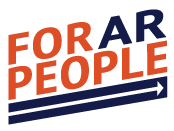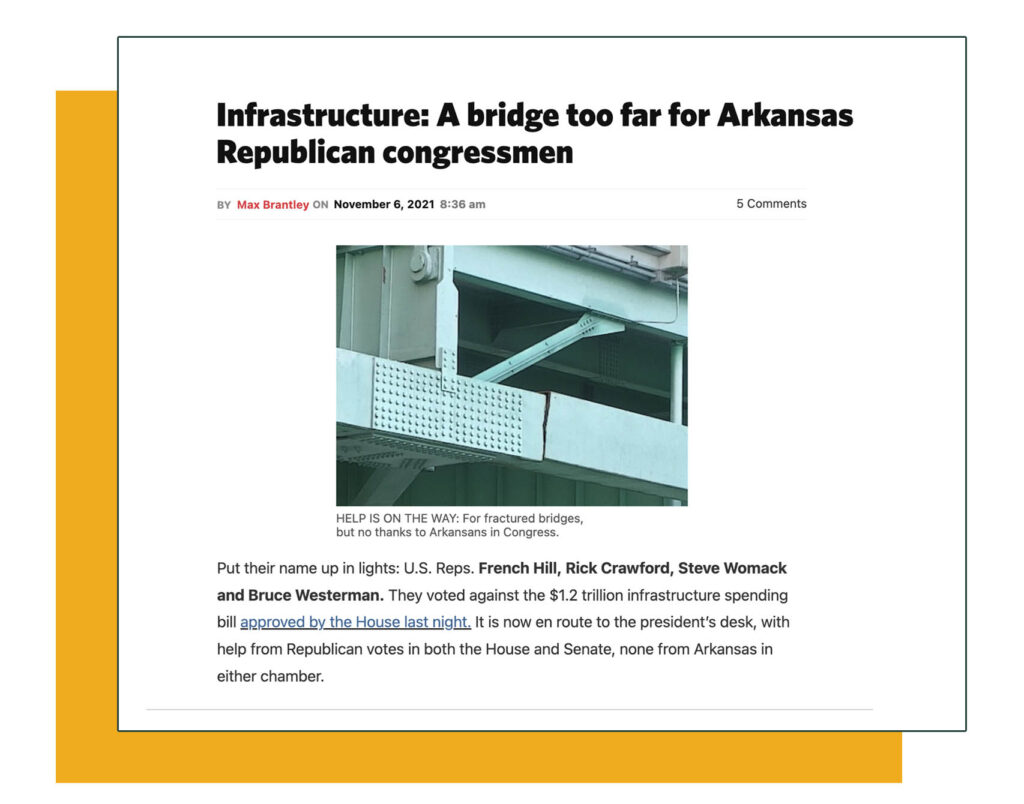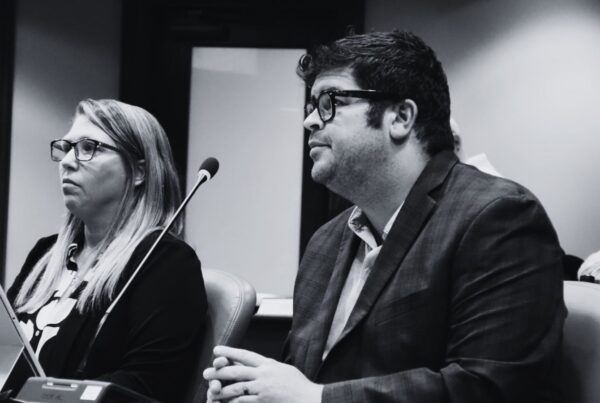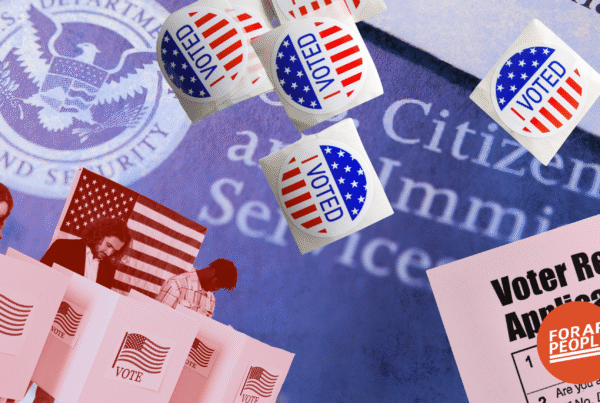- Basic government functions include education, health care, infrastructure, public safety, and social services.
- Instead of spending state money on essential goods and services for citizens, our leaders have prioritized tax breaks, prison expansion, and government overreach.
- The state budget represents the state’s priorities. Things won’t change until we elect leaders who will prioritize helping everyday people get ahead.
The bad optics around Helena-West Helena’s water crisis and our state’s $1.16 billion surplus has Arkansans talking about just what our government is supposed to be doing. The state may not be able to divert surplus funds directly to Helena-West Helena, but Arkansas’s hoarding of funds demonstrates leaders’ desire to use the current surplus to justify future bad policy.
Our state’s rankings in health and well being are abysmal. There’s a direct correlation between the money Arkansas scoops up but doesn’t spend on its people and a state population that’s struggling more than ever.
What is the purpose of the Arkansas state government? What is the state’s role in helping its people? How should the state spend its money?

These are important questions for every resident to ask. Fiscal conservatives appreciate a state budget that neither spends money it doesn’t have nor expands to the point of overreach. We see merit in this, but Arkansas is nowhere close to spending money it doesn’t have.. yet (the hoarding is temporary and will be used to justify eliminating the state income tax, which will put us in a very big bind).
What Arkansans should know is that the state government exists to provide a handful of basic services. Yes, budgets ultimately dictate what is prioritized for each state, and these prioritizes vary greatly based on who is in charge. But regardless of which political party controls a state, a few essentials must be funded for the good of the people. Here’s a short, inexhaustive list:
Education
State governments are responsible for the administration and funding of public K-12 schools. This includes establishing educational standards and allocating funds to school districts. States also oversee higher education systems.
Health Care
Your state plays a significant role in health care through programs such as Medicaid. It’s the job of the state to fund Medicaid, which provides health care coverage for low-income individuals and families. Additionally, the state regulates healthcare facilities, implements initiatives, and supports community health programs.
Transportation + Infrastructure
State governments are responsible for the development, maintenance, and regulation of transportation infrastructure within their boundaries — think highways, bridges, public transit systems, airports, and more.
Public Safety
A state has to maintain and fund its public safety agencies, like state police departments and highway patrols. Another public safety function of the state is providing emergency management and disaster response protocols, coordinating resources, and implementing disaster preparedness plans.
Social Services
States administer social service programs to support vulnerable populations and individuals. These services include programs for child welfare, foster care, adoption, elder care, disability services, and mental health services. State governments also often provide unemployment benefits and administer workforce development programs.
Resources and Environment
States oversee areas such as water resources, air quality, waste management, and land use planning. State departments of natural resources or environmental protection develop regulations, issue permits, and enforce environmental laws. Importantly for the Natural State, they also maintain state parks and public outdoor spaces.
So what?
These functions of state government have to be funded appropriately in order for residents to live healthy, whole lives. Arkansas, however, is falling quite short on fulfilling these requirements.
Over the last few years, both state and national lawmakers have sought to cut funding for basic programs and block policies that would help hardworking people. Some examples of what leaders have cut, attempted to cut, or outright canceled include:
- Infrastructure
- Air traffic control
- Railroad safety
- SNAP asset increases
- Extending Medicaid coverage for new moms
- State investments tied to good environmental standards
- Federal funding and federal grants
- Unemployment benefits
- State earned income tax credit
- Water and air quality enforcement
Instead of helping everyday Arkansas, here is what our state supermajority has prioritized:
- Tax cuts for the wealthiest Arkansans + largest corporations
- Publicly-funded vouchers for families to attend private schools
- Building prisons
- Helping fossil fuel companies
- Helping firearms and weapons manufacturers
- Regulating women’s bodies
- Policing LGBTQ Arkansans
- Criminalizing library practices
Our state leaders hope residents stay out of the budget conversations. Because when we demand a seat at the table, lawmakers will have to start listening to our needs, too. Right now the folks at the table are big corporations, wealthy stakeholders, special interest groups, and politicians in power.
What Arkansas has done lately has been mostly for these groups – not the rest of us. Things won’t change until voters send people to Little Rock who truly care about helping everyday people get ahead, and those conversations have to start with our state budget.






